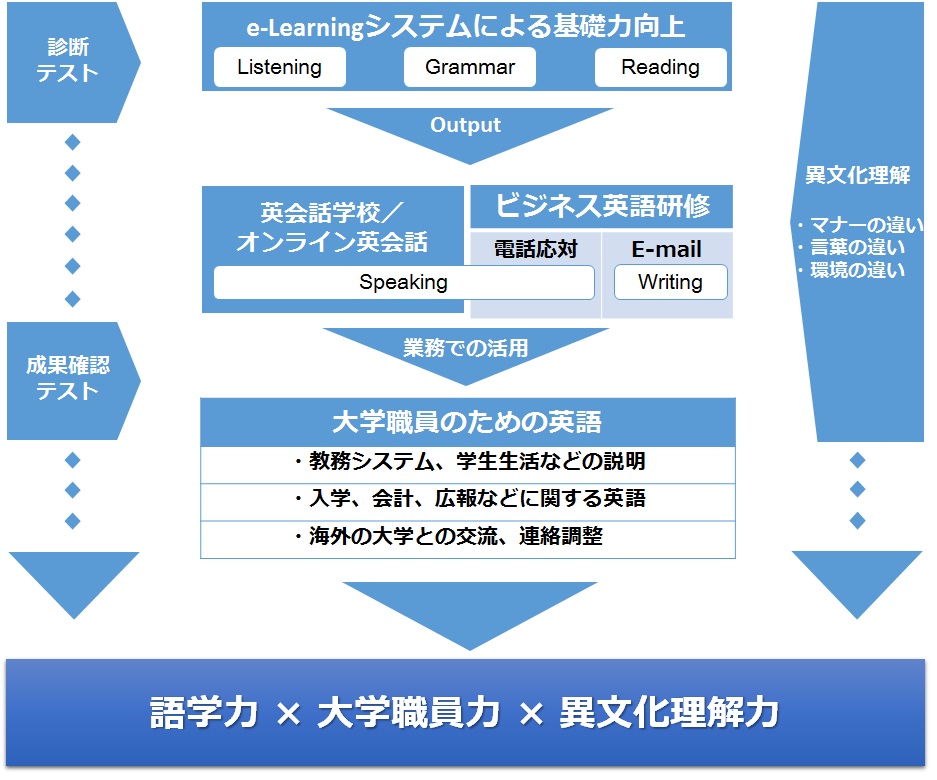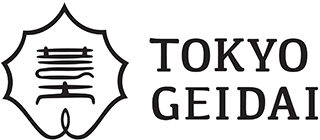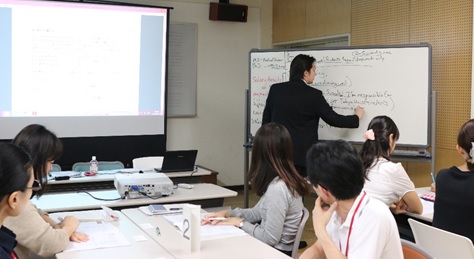大学事務職員を対象とした英語研修English Training Program for Administrative Staff
September 25, 2015
東京藝術大学では、グローバル化への取り組みの一環として、事務職員を対象とした包括的・長期的な英語研修を平成27年度より開始しました。TOEIC700点以上に相当する英語力を備えた職員の数を1年間で3倍(20人→60人)に増やすことを目的とし、以下のプログラムを進めています。

今回は、外部講師を招いて行った「ビジネス英語基礎講義・演習」についてご紹介します。大学内での業務を想定し、TelephoneとE-mail Writingの2つのテーマを取り扱いました。
Telephoneでは、はじめに”May I help you?”、 “May I ask who’s calling please?” など基本的なフレーズを、ダイアログを通して学び、ペアを組んでロールプレイングを行いました。より丁寧な表現やカジュアルな表現、よく日本人が相手を誤解させてしまう応対などについても触れ、また、大学内で想定される事例を取り上げて、長いやりとりの練習を数パターン行いました。

E-mail Writingでは、まず「日本語のメール文章をそのまま英語に置き換えることはしないように」と講師より指摘がありました。英語でE-mailを作成する際には、簡潔にはっきりと相手に伝わる内容を書かなければ、重要な件と判断されず、返事をいただけないこともあるそうです。
E-mailを書く基本として、件名の書き方、敬称の付け方、挨拶の書き出し、自己紹介、用件の書き出し、結びの表現などを学んだ後、演習問題で実際にE-mail文書を書く練習をしました。
さらに、期限の伝え方、月日の書き方がアメリカとヨーロッパでは異なること、相手に誤解を与えない表現方法などを学びました。


研修受講者からは、「実務に役立ちそうなフレーズに特化されていて良かった」などの意見がありました。
今後は、学んだことをそのままにしないため、日常的に業務に活かせるよう、実践的な復習の機会を設けていく予定です。
In 2015, Tokyo University of the Arts launched a comprehensive and long-term English training program for the administrative staff as a part of the university globalization project. The program is currently underway aiming to triple the number of staff whose English proficiency is equivalent to a TOEIC® test score of 700 or over.

We would like to introduce one of the programs, “Introduction to Business English”. Assuming actual work in university, two sections dealing with Telephoning and E-mail Writing were conducted.
Participants learned some basic phrases such as “May I help you?” and “May I ask who’s calling please?” through dialogues at the beginning of Telephoning section. They also practiced the phrases by role playing. Furthermore, the program covered more polite and casual expressions, and some misleading behaviors that the Japanese tend to do on business. Using some case examples which may be used at university, longer dialogue exercises were implemented.

In the E-mail Writing section, the lecturer told participants to try not to translate Japanese e-mail into English. It is because some English speakers might judge the e-mail is not important, and you may not receive its reply unless you write it clearly and concisely.
The lecture was begun with basic ways of writing e-mails in English, for instance, how to write subjects, titles of respect, greetings, and self-introduction and how to begin the opening part and to finish by signing off. Each participant tried to write an English e-mail after that part.
In addition, the ways to tell deadlines and to write clearly to avoid misunderstanding were taught as well as different ways of writing dates in America and Europe.


There was a review comment from a participant saying that she found the class good as she learned some useful phrases that can be used in actual work settings.
We plan to offer some more practical opportunities for the participants to practice what they learned in the classroom.


